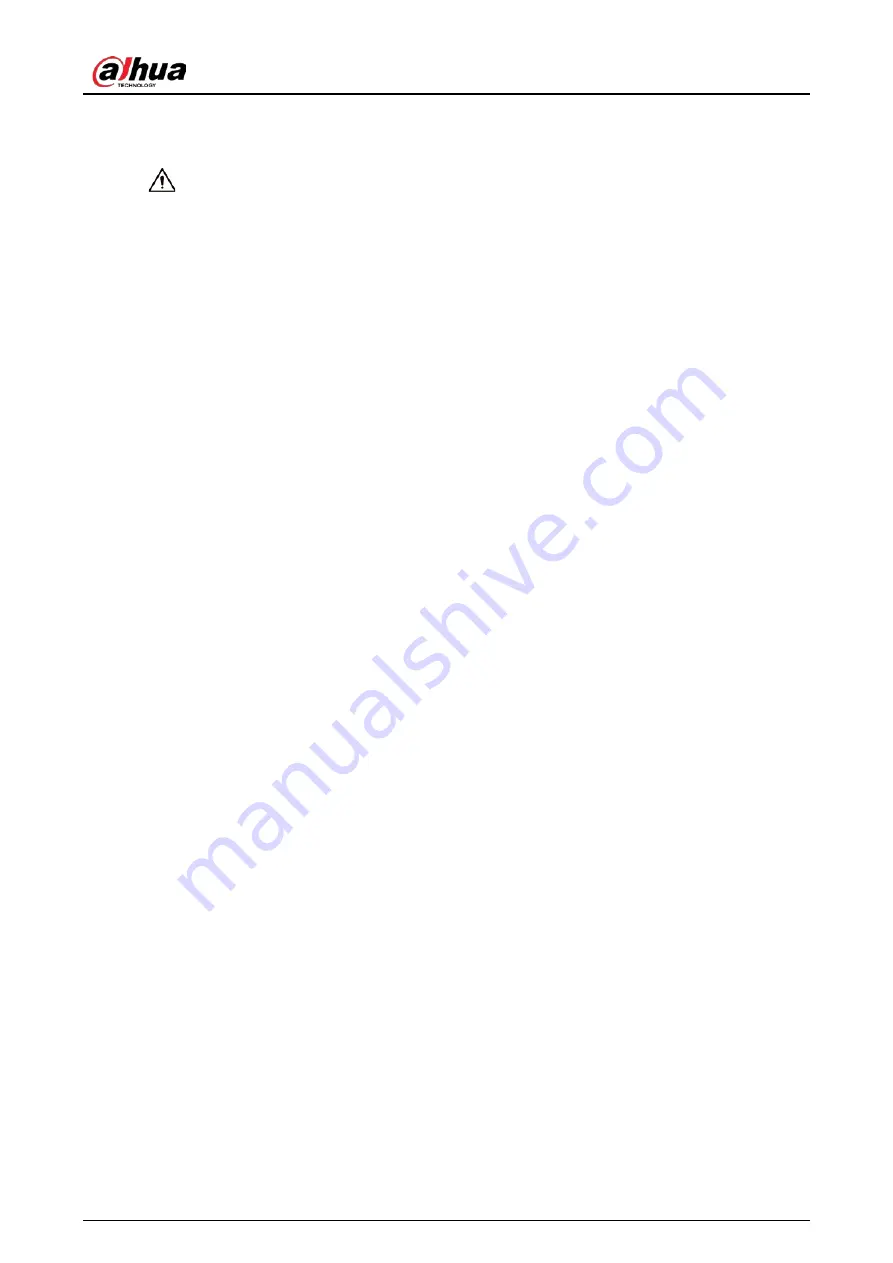
Quick Start Guide
V
Maintenance Requirements
Strictly follow the instructions to disassemble the device. Non-professionals dismantling the
device can result in it leaking water or producing poor quality images. For a device that is required
to be disassembled before use, make sure the seal ring is flat and in the seal groove when putting
the cover back on. When you find condensed water forming on the lens or the desiccant becomes
green after you disassembled the device, contact after-sales service to replace the desiccant.
Desiccants might not be provided depending on the actual model.
Use the accessories suggested by the manufacturer. Installation and maintenance must be
performed by qualified professionals.
Do not directly touch the photosensitive CMOS. Use an air blower to clean the dust or dirt on the
lens. When it is necessary to clean the device, slightly wet a soft cloth with alcohol, and gently
wipe away the dirt.
Clean the device body with a soft dry cloth. If there are any stubborn stains, clean them away with
a soft cloth dipped in a neutral detergent, and then wipe the surface dry. Do not use volatile
solvents such as ethyl alcohol, benzene, diluent, or abrasive detergents on the device to avoid
damaging the coating and degrading the performance of the device.
The dome cover is an optical component. When it is contaminated with dust, grease, or
fingerprints, use degreasing cotton moistened with a little ether or a clean soft cloth dipped in
water to gently wipe it clean. An air gun is useful for blowing dust away.
It is normal for a camera made of stainless steel to develop rust on its surface after being used in
a strong corrosive environment (such as the seaside, and chemical plants). Use an abrasive soft
cloth moistened with a little acid solution (vinegar is recommended) to gently wipe it away.
Afterwards, wipe it dry.





































